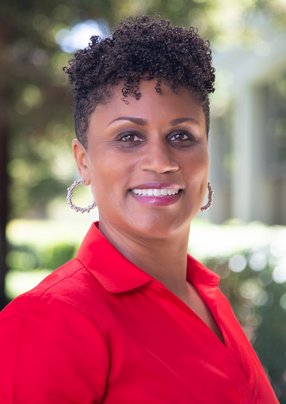
Interview with Jennifer Jones-McMeans
Divisional VP of Global Clinical Affairs at Abbott
Introduce yourself and your role at Abbott.
I’m Jennifer Jones-McMeans and I serve as the Divisional Vice President of Global Clinical Affairs for Abbott’s vascular business. For the past 14 years, I’ve worked on gaining approval for numerous medical devices. I also lead the new Diversity in Research Office at Abbott, where we focus on driving diversity in the company’s clinical trials and improving access to care among underrepresented populations.
Please provide a bit of background on Abbott's current footprint.
At Abbott, we’re committed to creating and changing the future of healthcare through life-changing technologies and products that drive breakthroughs in prevention, diagnosis and treatment.
Abbott began 135 years ago with one physician developing medicine by hand to treat his patients and today, we’ve grown to more than 115,000 people. Our breakthrough medical technologies help restore people’s health, returning them back to living their best lives.
While nearly 40% of the U. population consists of people of diverse ethnic and cultural backgrounds, due to a long history of mistrust and societal barriers, Hispanics and Blacks are vastly underrepresented in clinical trials, representing only 5% of enrollees.
The mission of Abbott’s Diversity in Research Office is to create a more inclusive clinical trial ecosystem and address the systemic barriers that exist today, ultimately leading to a more equitable healthcare system.
What is Abbott’s USP
Given that we treat several conditions, including heart health, diabetes and postnatal care, Abbott is invested in creating a more equitable clinical trial ecosystem to better support people in every stage of life. Clinical trials drive new, innovative tools to fight diseases, and overcoming barriers to access clinical trials for under-represented communities is critical to improving health equity.
Abbott is focused on breaking down barriers and implementing new, sustainable partnerships and programmes that drive more diversity in our clinical trials.
How do you increase diversity in clinical trials?
Abbott's Diversity in Clinical Trials initiative aligns with the company's continued focus for greater health equity, expanded access, affordability and removing barriers to life-saving technology and innovation.
In the programme's first year, we established a Diversity in Clinical Trials Medical Advisory Board composed of external experts and an internal steering committee that is focused on increasing diversity enrollment in the company's clinical trials.
Through US$5m in grants, we sponsored more than 300 scholarships at four HBCU medical schools and the National Black Nurses Association and National Association of Hispanic Nurses to support future clinical research leaders.
These programmes provide a roadmap of best practices to help community-based clinics create clinical trial research centres of excellence. The initiative also provides grants to support the hiring and training of research coordinators and data managers and help guide the launch of research programs.
Our first project is centred in Louisville, Kentucky, and is focused on helping patients in historically redlined areas of Louisville access clinical trial opportunities. ‘Redlining’ is a discriminatory practice that has resulted in equities in diverse populations. We’re excited to launch this project and make an impact in the community.
How will this improve care among underrepresented populations?
As a global healthcare company, it is necessary that we focus and analyse the patient life span across all backgrounds. By diversifying clinical trials, we are confident that we will produce more effective medical devices and therapies, resulting in widespread improvements of healthcare outcomes.
By addressing the four key barriers to clinical trials enrollment: lack of access to trials, lack of trust, lack of understanding and lack of common language, Abbott’s Diversity in Research Office will drive continued progress with these programs. Our goal is to create a blueprint for others to follow, resulting in a more equitable clinical trial ecosystem.
What is Abbott’s Diversity in Research Office (DIRO)?
Along with our partner programmes, Abbott established the new Diversity in Research Office to focus on driving diversity in the company’s clinical trials and improving access to care among under-represented populations.
The role of the new office is to ensure research efforts include diverse plans and key performance goals. Through this initiative, we aim to foster collaboration across the company, the industry and regulatory bodies. I have the honour of leading the office along with Aparna Ahuja, M.D., divisional vice president for medical, clinical and scientific affairs, Infectious Disease, for Abbott’s rapid diagnostics business.
By 2030, Abbott’s goal is to build a strong model through our diversity in research efforts to eventually help 3bn people annually.
Why is Abbott committed to diversity?
Ensuring that clinical trials are as diverse as the people a product intends to serve is critically important in providing the best healthcare, so we're developing programmes to address as many barriers as possible.
At Abbott, we've implemented programs that will increase the diversity of trials, including assessing how we conduct our trials to ensure that we're doing all we can to increase participation from under-served and under-represented populations.
Plans for DIRO over next 12-months?
Our goal is to ensure that clinical trials are as diverse as the people a product intends to serve – this is critically important in providing the best care. We’re developing educational materials for communities and partnering with organisations to expand access to new patient populations and creating resources on disease state awareness.
At Abbott, we’re excited to grow the initiative over the next year, especially with our first project in Louisville, Kentucky, and educate the healthcare industry on the importance of diversity in clinical trials and collaborate on ways to overcome barriers.
- EU Law Pushes Tech Firms to Confront Accessibility GapsTechnology & AI
- Universal Printing Company: Quality, diversity & innovationProcurement & Supply Chain
- Universal Printing Company: Quality, diversity & innovationProcurement & Supply Chain
- Promoting equality and diversity to increase economic growthHospitals




